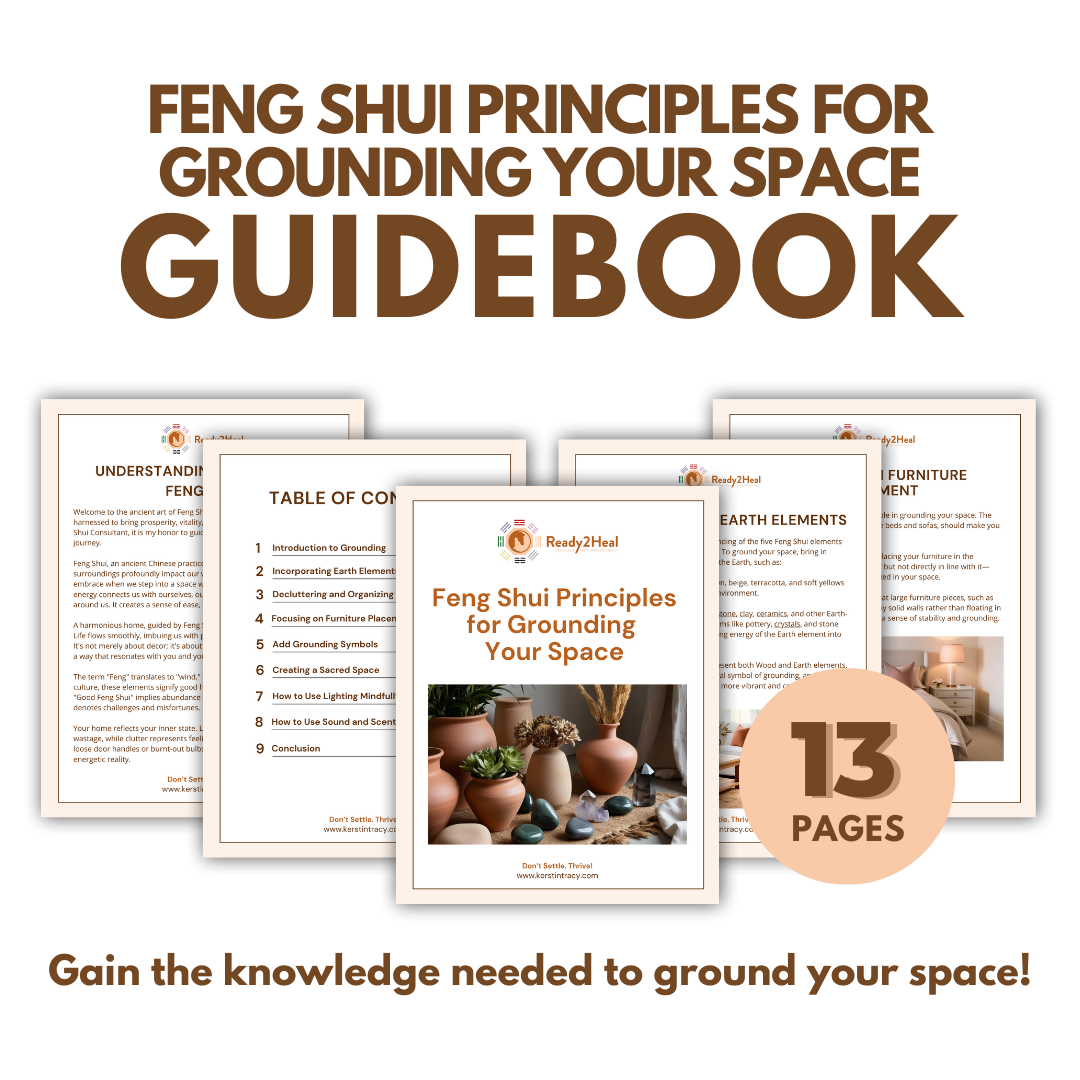What is Grounding in Feng Shui?
Kerstin Tracy | Feng Shui
Grounding is a fundamental concept in Feng Shui that connects the energy flow in your space with stability, calm, and balance in your life. Rooted in aligning ourselves with the Earth’s natural forces, grounding helps you feel centered, focused, and in harmony with your environment.
Feng Shui is all about working with Chi (the universal life force) to ensure that it flows smoothly through your surroundings, and grounding plays a crucial role in achieving that goal.
In this blog post, we will explore what grounding means in the context of Feng Shui, why it's essential, and how you can use Feng Shui principles to ground yourself and your environment for a more balanced and harmonious life.
Understanding Grounding in Feng Shui
In Feng Shui, grounding creates a solid, energetic connection between your physical environment and the Earth. It helps you feel secure, stable, and anchored in your space. Just as a tree needs deep roots to thrive, we need to feel connected to the Earth to maintain emotional balance, mental clarity, and physical health. This connection is vital in modern times, where stress, distractions, and digital overload often make us feel unbalanced and scattered.
Grounding your space helps to calm excess Yang (active) energy while encouraging the steady, nurturing qualities of Yin (passive) energy. Creating a grounded environment promotes a sense of peace and stability, enabling you to focus on your goals, rest more deeply, and feel more present in your daily life.
Why Grounding is Important
In Feng Shui, ungrounded energy can manifest in many ways, such as feeling overwhelmed, scattered, or out of control. When energy in a space is unbalanced, it can create stress, anxiety, and a sense of unease. This might manifest in disorganization in your home, poor sleep, or difficulty focusing on tasks.
Grounding helps to:
Stabilize energy: It ensures the energy in your home flows steadily and predictably, creating a calm and nurturing atmosphere.
Promote mental clarity: A grounded space encourages clear thinking and focus, making it easier to navigate challenges and make decisions.
Support emotional balance: Grounding creates an environment that fosters emotional security, helping you feel safe, supported, and at peace.
Enhance physical health: Grounding can support physical well-being by promoting balanced Chi, helping you feel more energized, calm, and resilient.
Grounding Yourself Through Feng Shui
Grounding isn't just about your physical environment but also about your energy. In Feng Shui, your surroundings influence your well-being, but you also bring energy into the space. Here are some personal practices to stay grounded using Feng Shui principles:
Walking barefoot on the Earth: One of the simplest and most effective ways to ground yourself is to spend time in nature, connecting directly with the Earth’s energy.
Meditation and breathwork: Regular meditation, especially in a space designed with Feng Shui principles, helps you center and calm your mind. Focus on slow, deep breathing to ground your energy.
Wear grounding colors: Clothing in Earth tones, like browns, greens, and warm neutrals, can help you feel more connected to the Earth and aligned with the energies of stability and calm.
What to know how to ground your space using Feng Shui Principles?
Transform your space and your energy today with my FREE guide on using Feng Shui principles to ground your home or office! This comprehensive 13-page resource is packed with expert tips, actionable advice, and proven techniques to help you create a calm, balanced, and rejuvenating environment.
Don’t wait—start grounding your space now and experience the difference Feng Shui can make in your life. Download your copy below today and take the first step toward a more harmonious, grounded space!





